Bites for the planet, pt. 1
The Earth Day edition of the Frost Bites newsletter (part 1 of 2 because, as per usual, I have a lot to say).
Good morning! In the spirit of Earth Day fast approaching, today’s newsletter will be all about how our food systems/habits can negatively impact this lovely planet. Next week’s newsletter will be all about how we can help solve the problem. Here’s to taking care of the earth, one bite at a time!
THE PROBLEM
I’ve been thinking lately about how easy it is to become disconnected with nature in the world we live in. We look down at our phones instead of looking up at the clouds, we drive to our destinations instead of walking, we wear earbuds outside instead of listening to the singing birds and rustling leaves, etc., etc. We also (mostly) go to the grocery store to source food instead of putting our hands in the soil and growing it ourselves. Now I love a good grocery store and it’s obviously not practical for everyone to grow/produce all of their food, but it is strangely easy to forget that the products on the shelves first came from the earth. It only makes sense for us to take care of the earth if we want to keep those shelves full of good snacks. And I, personally, want to live in a world full of good snacks.
As it turns out, food systems are to blame for about a third of human-caused greenhouse gas emissions (aka the gases that are responsible for trapping heat in the atmosphere, leading to a warming effect on the planet). Agriculture and land-use practices (including fertilizer usage, livestock, emissions from deforestation, etc.) contribute the most to food-related emissions. Transportation, refrigeration, and packaging are just a few of the other factors involved. Food waste is also a major contributor to the problem - according to the UN, almost 1 billion tons of food end up in the trash each year. When food scraps go to the landfill, they decay in an environment with a lack of oxygen and emit methane, which is a potent greenhouse gas.
What complicates this issue further is that a changing climate has massive impacts on our food systems. As the planet warms and weather events intensify, crop production, food access, and food stability suffers. Our food systems impact the climate, and the climate impacts food systems right back. It’s not the kind of feedback loop we want to be stuck in.
So this is all kind of a bummer - but there are great things you can do to eat like you love the planet! There will be more to come on that in next week’s newsletter. In the meantime, to end things on a happier note, we have been working on seeing what we can grow on our little quarter acre plot of land in the city. Some seeds have been sowed, a few teeeeeeeny tiny seedlings are starting to pop up, a makeshift greenhouse has been engineered, and soil/compost/biochar has been purchased and is being put to good use. It just feels right to spend some time with your hands buried in the soil as Earth Day approaches!
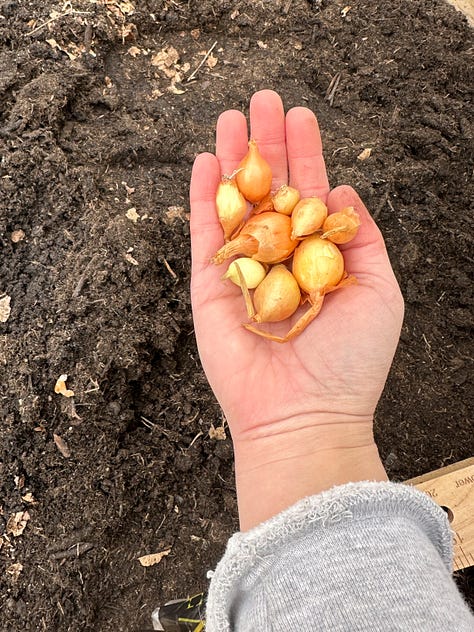
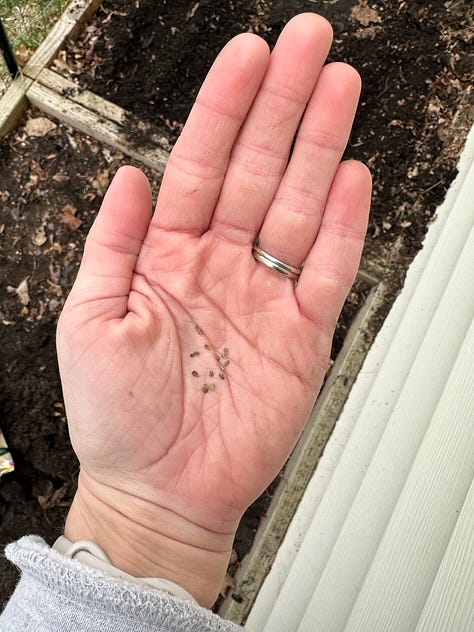
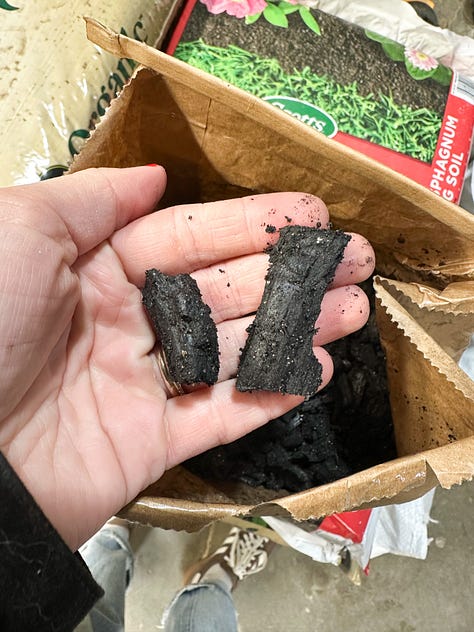
And since this is the Frost Bites newsletter where we talk about good eats…here’s the sunniest bowl of oatmeal I’ve ever had and a pistachio cake that I made last week.
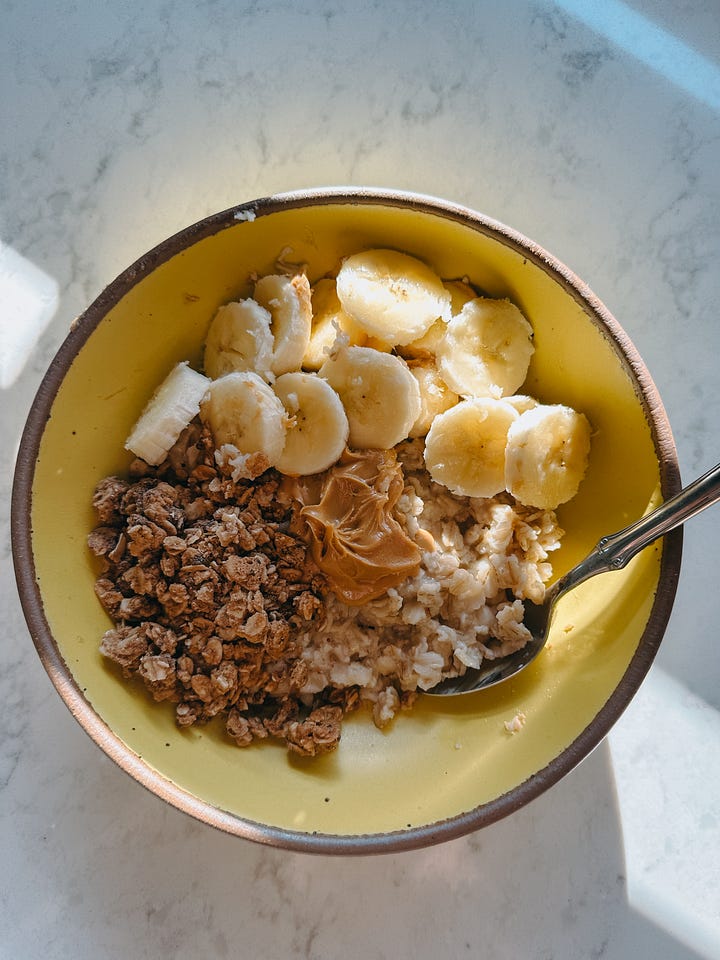

Have a great week, friends!
Thanks for making it to the end of the Frost Bites Newsletter! I’ll be back in your inbox next Monday with the weather forecast and recipe suggestions. In the meantime - get outside, eat good food, and remember all weather is ice cream weather.
SOURCES
Food systems are responsible for a third of global anthropogenic GHG emissions: https://www.nature.com/articles/s43016-021-00225-9#citeas
Food and climate change: healthy diets for a healthier planet: https://www.un.org/en/climatechange/science/climate-issues/food
Climate change and food systems: https://www.ncbi.nlm.nih.gov/books/NBK599624/
Food and climate change: https://foodsystemprimer.org/production/food-and-climate-change
Modern food emissions: https://www.nature.com/articles/s41558-023-01643-2



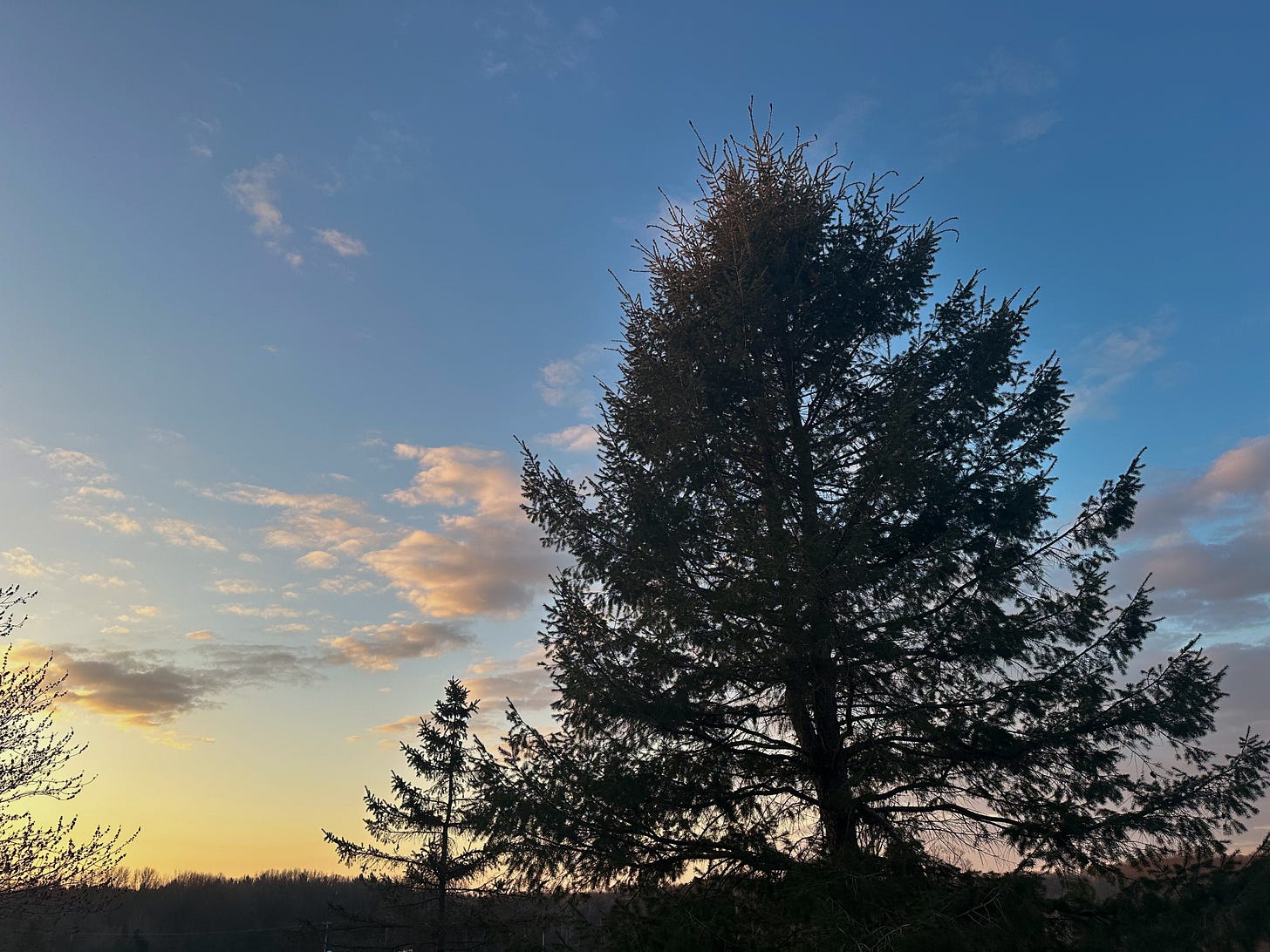
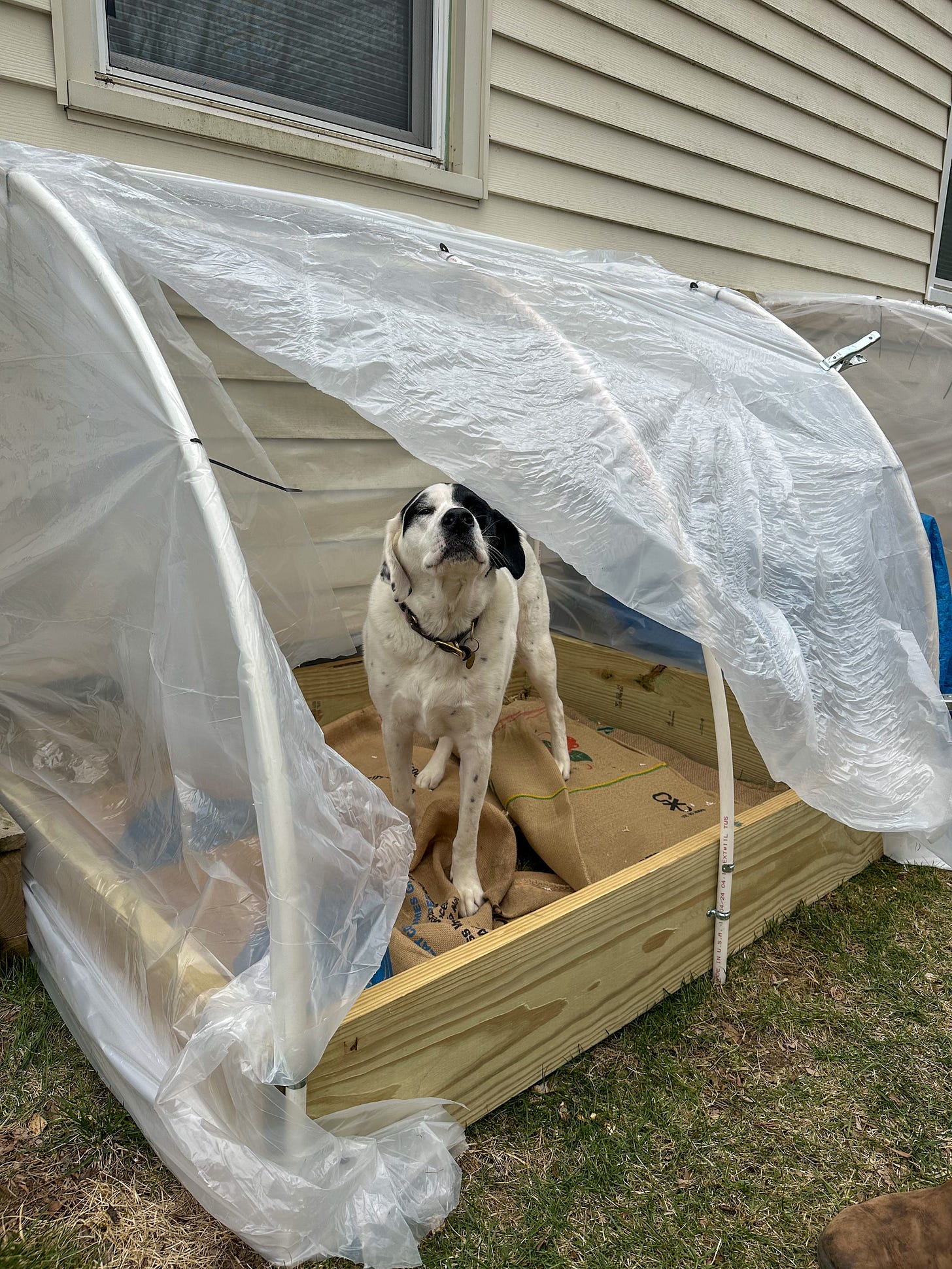
Your oatmeal is close to what I have every day during the week. Eat to live, not live to eat. Thanks Emily.